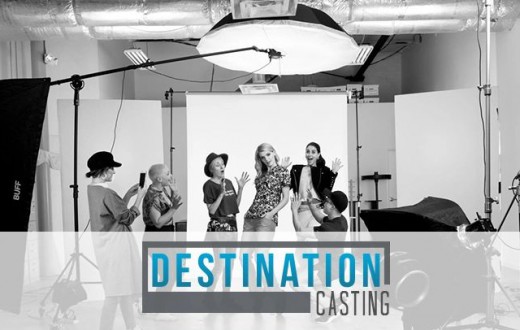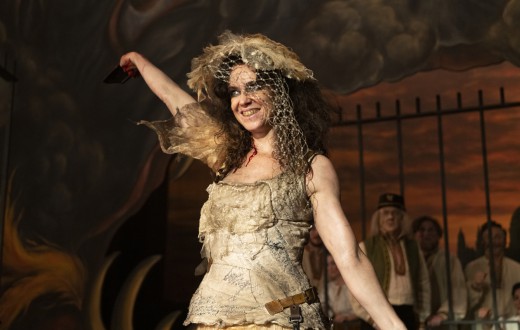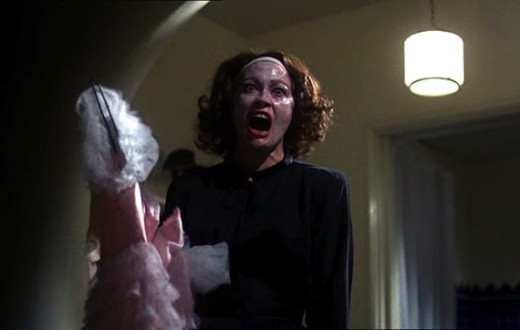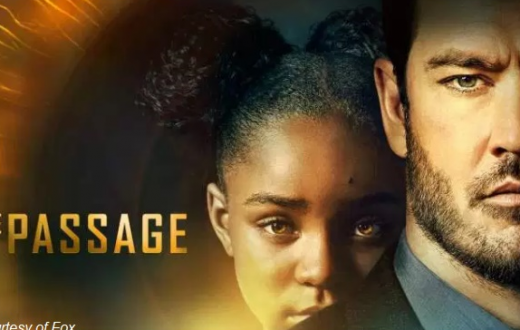Attention talented actors…
If you want to get work and keep working then you must conduct yourself like a business, says personal manager Ingrid French of Ingrid French Management.
Sometimes very talented and creative individuals can forget that this is a business in terms of returning phone calls promptly, making sure you are stocked on your resumes, that your headshots are updated and that you send thank you notes to casting directors.
When actors treat their careers as a business, they take themselves to a whole new level because there are a lot of talented people and creative people but not everyone has the business savvy. It helps differentiate a great actor from someone who is going to work and stay working, Ingrid shares.
Since 1999, Ingrid French has helped actors and models reach higher success levels in commercial print, commercials, television, film, theatre and voice-overs.
Ingrid French Management thrives, even in this tough economy, because of strong relationships, Ingrid’s knowledge, and her talented clients.
To help you achieve a higher success level, Ingrid shares some behind the scenes business tips with NYCastings…
Q: What makes Ingrid French Management successful?
 I have great clients and casting directors who I have great relationships with who keep calling, even if it is a little slow. I keep finding good new faces and I have a great team in the office.
I have great clients and casting directors who I have great relationships with who keep calling, even if it is a little slow. I keep finding good new faces and I have a great team in the office.
Q: How do managers differ from agents?
I worked at an agency before I opened my management company and to me the main difference is that when I worked as an agent I had a ton of clients that I worked with but I only worked with them on a specific area. When I worked on the commercial side, I only worked with them for commercials. When I worked on the legit side, I only deal with their TV, Film, and Theatre appointments. I would meet people that would be great for commercials but I didn’t work on that and there wasn’t a lot of cross over in the office.
So one of the things that influenced my decision to become a manager, is that I wanted to work with fewer actors and be able to work with them across the board. I wanted to have my hand in all pieces of the actors pie, to really help them strategize and to be able to work with the casting directors, directors and producers who can get them where they want to be.
For me, being a manager is more hands on across the board as opposed to doing more of procuring appointments and sending actors out for a specific area.
As a manager, I do a lot of development as well.
For agents, many times, you have to be already going out, making money, and have relationships established. Managers are more willing to develop a newer face, with fewer credits, and do some of the groundwork to get people out there. Not to say that agents don’t, but managers are more likely to help develop performers. Having fewer clients allows managers to do more of that.
The lines are blurred, though.
As a manager, I am procuring appointments all the time and submitting people directly to casting directors. I also have some amazing agents that I work with. For my actors, and for me, it’s all about having an extra set of eyes ears and hands to help the actor get out and make sure materials are right and marketing is in place.
Everyone has different relationships. If an actor has an agent and myself, the agent may have a better relationship with a casting director and I may have a great relationship with another casting director so we can target the industry people we know best to pitch my clients and try and get them appointments. Or maybe the agent is too busy one day to do a feedback call so I may do that. To have two people working for the actor is great because they have a better chance to get appointments.
Q: You freelance and sign talent?
I usually freelance first. The intent of the freelancing is to move into a signed relationship. It’s to get a good sense of the actor, to make sure they are happy, that I’m happy and we click. Usually anyone I take on has a similar vision and we see his or her career going the same way. But freelancing gives us the chance to make sure we are on the same page, have the same goals and what I am going to be submitting them for is how they want to be seen. If everyone is happy, that’s when we sign. That’s always the goal, to move into a signed relationship.
Q: If an actor is freelancing with you and they only get one audition a week, does that reflect poorly on their marketability?
Not at all. There are weeks that will come by for a certain age group or actor and they’ll be going out every day or twice a day and there are weeks when nothing comes in for them. That is never a cause to worry and there are things as an actor to you can do to make sure you stay on my radar. If you haven’t heard from me, shoot me an email and update me on something your doing or a class you’ve taken. Don’t email me and just say do you remember me?’ But definitely update me with what you have going on.
And if it is a little quiet go meet a casting director somewhere and let me know about that because anything that you can do as an actor to show me you are being proactive will keep you on my radar. Then I have learned something new about you, a new casting director that you’ve met, and it might help me get you into that office.
Q: Should actors alert casting directors when they start freelancing with a manager or agent?
Yeah, that really does help. I can’t tell you how many times an actor has said that when they’ve met a casting director and then I am on the phone with that casting director who says I just met an actor that you work with.’ We end up having a five or ten minute conversation about that actor and if that actor never mentioned to the casting director I am working with Ingrid now’ then we never would have had that ten-minute conversation. Many times an appointment can come out of it. Casting directors like to know where they can find an actor they have met, especially one they like.
So many times, I have had casting directors say I love that person, but I don’t call actors directly. Now that I know who represents them, I can call.’
Also, a casting director can forget that an actor works with me so if I know the actor has met a casting director then I make sure to submit them when that casting director has a role that the person is right. I bring them up again.
Q: How can an actor make his or herself a hotter commodity?
I feel like right now, and part of it may be the economic times that we are in with everyone’s budgets being so constrained, that a lot of casting directors ask me does the actor have a video I can look at or a reel?’ It streamlines whom they bring in for casting so as an actor having those tools, like links to work or a reel on an actor’s site will help.
Even later down the line they may have actors that they like and are trying to make a decision. If they can see more of one actor, that can tip the scale in favor of the actor who has links.
I submitted a client of mine for a commercial the other week and they called to put her on hold. They were doing this off headshots and weren’t even bringing the actors in. Well, the producer who called to put her on hold, Googled her and got all of these video clips of work that she’s done. By the time I called back to say yes she’s available,’ the producer said she’s perfect, I’ve seen all her stuff. She’s great.’ And she got the job.
If he was not able to find anything on her then I feel like maybe they would have put several other people on hold, gone back and forth, or maybe had to bring people in. Because he could so quickly access her information and look at her body of work, she made the decision easy.
Q: I read that you get a couple hundred headshots/resumes a week and I know you go to a number of the meet and greets. What does it take to break through the clutter? To be that needle in a haystack?
There are a lot of different ways but one of the ways that stands out the best is if they have a referral form a casting director, director, or producer who says this actor is amazing you have to meet them.’ That makes me take notice.
What the casting directors or directors are looking for can change and I may not have a person like that on my roster so I will go to events and seek out a certain look. Yet, great referrals from an industry source are always good. And the actors I work with also refer because they have a good idea of what talent I like and who would fit in the office.
Q: Should actors ask casting directors for recommendations?
The actor should definitely ask. Many times a casting director knows what types of actors I like. They don’t call in actors directly but they may say I think you are great and you would be a good fit for Ingrid.’ Then they’ll give me a call and set it up.
Many times actors will ask the casting directors who bring them in and like their work. They’ll say I am looking for new representation will you put in a call for me.’
If an agent or manager gets a call from a casting director saying this person is amazing, will you see them?’ they always do, I always do.
Q: There seems to be a trend for ethnically ambiguous actors right now?
There is. When I see someone who is ethnically ambiguous, I pull those headshots out when I am going through my mail.
Q: What do casting directors mean by ethnically ambiguous?
Some people mean a mix between two different ethnicities, with a very exotic look, and you can’t place where they are from. I also hear that term to describe people with brown hair, brown eyes and olive skin. They could be Greek or Mediterranean, but they also look like they could be Spanish or Caucasian. Both types are popular right now.
Q: Can a resume look unfocused / should it tell a story of where a person wants to go with their career?
I like resumes that are clear, concise and as easy to read as possible. People want to navigate through your resume, quickly. And if there is an area, as an actor, that you are most interested in that should be apparent.
Sometimes I look at a resume and it’s all musical theatre and when I talk to them they say they don’t really want to do musical theater. That may be the reason why I brought them into the office, because I needed a musical theatre person.
If you have a musical theatre background but are trying to move away from it then limit the amount of musical theatre on your resume. Maybe take some classes in film and theater and put that on your resume so it looks more balanced.
Target your resume to what your goals are.
People look at your resume as your body of work and if it’s skewed in one area, people will assume that is where your focus is. If you are interested in everything open to anything, then it should look well rounded.
Also, I think the special skills section is really important. Some people use it as an afterthought. I never mind people putting things that are funny or reflect their personality, that’s great. But so many times I am using that special skills section to see what they can do and it may help me submit them or help a casting director know what they can do. If a casting director needs a tennis player and you are nationally ranked player, put that on your resume instead of just tennis. You want it to be as detailed as possible.
Q: When it comes to getting appointments, how important is it to respond quickly to postings?
It’s tough. With all the electronic submissions, it matters how fast you are. You could go to the bathroom and your submission could end up 5 minutes behind someone who replies sooner. The appointments go out fast. You have to be on it all the time, its very time sensitive.
Q: Many times an actor goes on an audition and wants feedback from their agent but they don’t want to be intrusive. Do managers give more hands on feedback?
It’s a little bit the same. Even with fewer clients then an agent, I am on the phone and emailing all day long. There may be times that an actor wants to talk to me and if it’s quiet I will spend 30 minutes catching up. But there are days when I am on three lines all day long. I think my actors know that if I have time to talk I am happy to and if I am really busy I may say let’s talk another day because it’s crazy right now.’
I am good friends with many of the actors I work with. We know a lot about each other’s lives so it’s good to catch up. Obviously, the more I know about them, the more it helps me in pitching them.
Another trend is that when commercials or legit roles are casting a nurse, they want a real nurse. There are so many things that an actor does besides for acting and that can determine whether they get auditions. The more I know, not just about their acting and talent but about what they do, could help them get auditions.
Q: Why does it take so long to get feedback after an audition? What is going on behind the scenes?
So much! Everyone is waiting on everyone else. The actors are waiting to hear from their agent, who is waiting to hear from the casting director, who is waiting to hear from the advertising agency, who is waiting to hear from the client. So, one phone call from the actor to the manager can spur phone calls down the line. And these decisions for the clients are big decision so it takes a while. Sometimes there is a lot of back and forth about actors.
As an actor, I feel like the best thing to do is to walk out of the audition and forget it. Because, I can’t tell you how many times someone calls me and tells me how amazing they did in an audition and we don’t hear anything and, on the same note, sometimes I will call people to tell them they booked a job and they will say I can’t believe it. I was terrible.’ How you feel when you walk out of the audition doesn’t always indicate what will happen in terms of actually getting the job. It is so arbitrary how they reach a decision. You never know.
Q: What do you enjoy most about managing talent?
I get to speak with my actors about their audition process and the work that they do. It’s exciting when they get a job. The whole process is exciting, watching someone go from the beginning stages of someone starting their career to seeing things blow up for them.
Q: Is there anything specific / exciting going on right now for your office?
It’s been a good year for us. I know we are in tough economic times but we’ve been doing really well. I have a couple national commercials that are running. Three actors booked Starbucks. I had someone on Nurse Jackie this week. We have had a bunch of people going out for pilots.
It has been good and I am encouraged because so many of my clients want to work across the board. My actors are booking commercials, television and film. They are getting a chance to exercise their skills in all areas. It’s great when you have someone who is in a play at night, doing commercials during the day and a couple day player roles as well. They are consistently working and that’s nice.
Speaking of nice…
THANK YOU Ingrid French for your time and behind the scenes insight!







